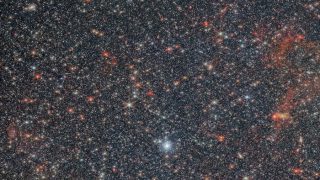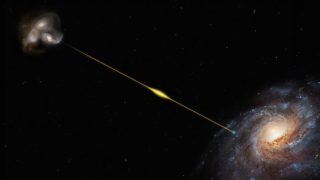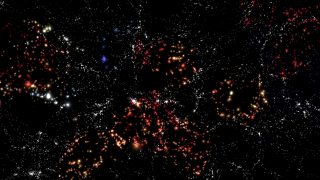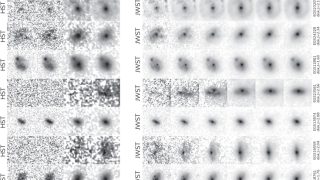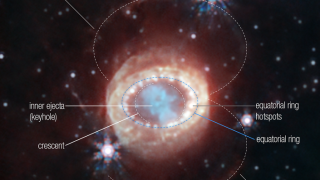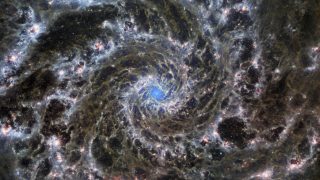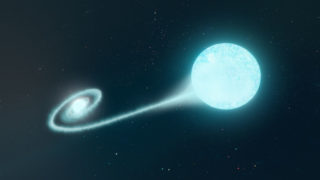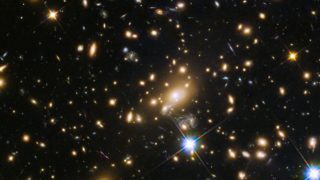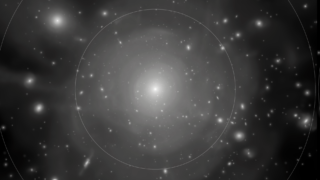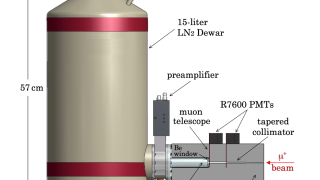
A boson travelling slower than escape velocities of stars and galaxies
The emergence of detector technologies with sensitivity to lower energies and improved resolution invites a shift of emphasis in particle-decay searches for massive neutral bosons: the kinematic limit of these reactions remains an unexplored realm where cosmologically-relevant particles may be waiting to be discovered. A case that illustrate this is the charged lepton flavour violating […]
